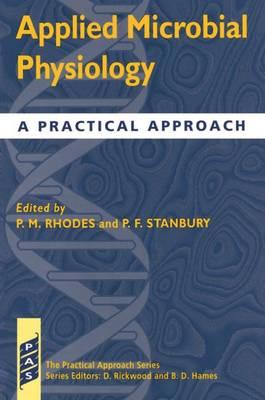Overview
The rapid growth in biotechnology in recent years has led to an upsurge in interest in microbial technology amongst many biochemists, molecular biologists, geneticists, virologists, endocrinologists, and clinicians. Their objectives may be very diverse, ranging from the isolation of a stable enzyme from a hyperthermophile to the expression of a human protein by a recombinant yeasts or bacterium. Advance in microbial physiology have made possible a rational approach to optimization of product yield based on analysis of cultures, growth kinetics, and biochemical pathways. The application of statistical optimization methods, widely used in other fields, also has much to offer microbiology and biotechnology. The choice of material for this book has been influenced by both the need for practical information to enable to the isolation, handling, and culture of organisms and the necessity to generate and analyse data enabling the development of a process. It therefore contains chapters covering the 'husbandry' of microbiology, the generation of data by chemical and physical analysis, and the interpretation of such data. Data interpretation is considered from two points of view. Kinetic analyses of growth and product formation have frequently illuminated the development of fermentation processes. More recently, the analysis of the flux of metabolites through intermediate biochemical pathways has shown up important factors in metabolic engineering through the application of molecular biology techniques in microbial physiology. Applied Microbial Culture: A Practical Approach is a useful resource and guide to the successful culture of microorganisms in pure form, optimizing the culture conditions, and the scaling-up process to enable more detailed study.
Full Product Details
Author: P. M. Rhodes (Bioscot Ltd, Edinburgh) ,
P. F. Stanbury (Department of Biosciences, University of Hertfordshire)
Publisher: Oxford University Press
Imprint: Oxford University Press
Volume: 183
Dimensions:
Width: 15.60cm
, Height: 1.70cm
, Length: 23.50cm
Weight: 0.510kg
ISBN: 9780199635771
ISBN 10: 0199635773
Pages: 290
Publication Date: 31 July 1997
Audience:
Professional and scholarly
,
Professional & Vocational
Format: Paperback
Publisher's Status: Out of Print
Availability: In Print

Limited stock is available. It will be ordered for you and shipped pending supplier's limited stock.
Reviews
The editors note that during the rapid development of biotechnology, scientists from many biological or medical disciplines have come to rely on the use of microorganisms to produce substances of commercial value. In many cases, the scientists do not have the training of a microbiologist, and this book seeks to provide the type of information that will enable them to move from research results to the point of production. . . . The contributors are well-known scientists in their fields. There are two appendixes, a useful list of 66 suppliers of equipment and chemicals . . . and an extensive list of the larger culture collections around the world. . . . All of the chapters are well written, and the book gives a good general perspective of the immense complexity of biotechnology. --The Quarterly Review of Biology<br>
`This book will prove very useful to anyone who is interested in reproducible optimised culture of micro-organisms in a laboratory.' ASLIB
Author Information
Dr P. Malcolm Rhodes, Bioscot Ltd, King's Buildings, West Mains Road, Edinburgh EH9 3JF. Tel: 0131 662 4551. Fax: 0131 662 4279. Dr Peter Stanbury, Dept of Biosciences, University of Hertfordshire, Hatfield Campus, Hatfield, Herts AL10 9AD




